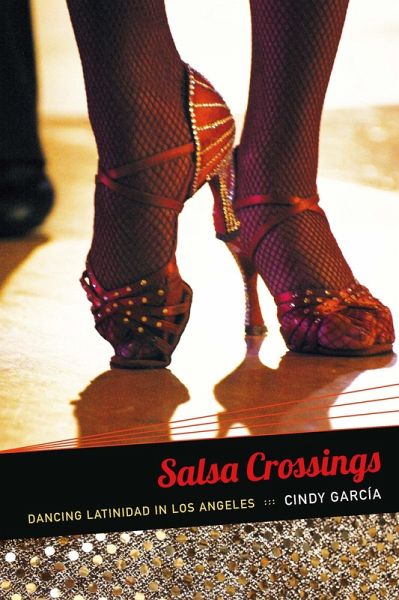
Salsa Crossings (eBook, PDF)
Dancing Latinidad in Los Angeles
Versandkostenfrei!
Sofort per Download lieferbar
130,95 €
inkl. MwSt.
Weitere Ausgaben:

PAYBACK Punkte
65 °P sammeln!
In Los Angeles, night after night, the city's salsa clubs become social arenas where hierarchies of gender, race, and class, and of nationality, citizenship, and belonging are enacted on and off the dance floor. In an ethnography filled with dramatic narratives, Cindy Garcia describes how local salseras/os gain social status by performing an exoticized L.A.-style salsa that distances them from club practices associated with Mexicanness. Many Latinos in Los Angeles try to avoid "e;dancing like a Mexican,"e; attempting to rid their dancing of techniques that might suggest that they are m...
In Los Angeles, night after night, the city's salsa clubs become social arenas where hierarchies of gender, race, and class, and of nationality, citizenship, and belonging are enacted on and off the dance floor. In an ethnography filled with dramatic narratives, Cindy Garcia describes how local salseras/os gain social status by performing an exoticized L.A.-style salsa that distances them from club practices associated with Mexicanness. Many Latinos in Los Angeles try to avoid "e;dancing like a Mexican,"e; attempting to rid their dancing of techniques that might suggest that they are migrants, poor, working-class, Mexican, or undocumented. In L.A. salsa clubs, social belonging and mobility depend on subtleties of technique and movement. With a well-timed dance-floor exit or the lift of a properly tweezed eyebrow, a dancer signals affiliation not only with a distinctive salsa style but also with a particular conceptualization of latinidad.
Dieser Download kann aus rechtlichen Gründen nur mit Rechnungsadresse in A, B, BG, CY, CZ, D, DK, EW, E, FIN, F, GR, HR, H, IRL, I, LT, L, LR, M, NL, PL, P, R, S, SLO, SK ausgeliefert werden.













